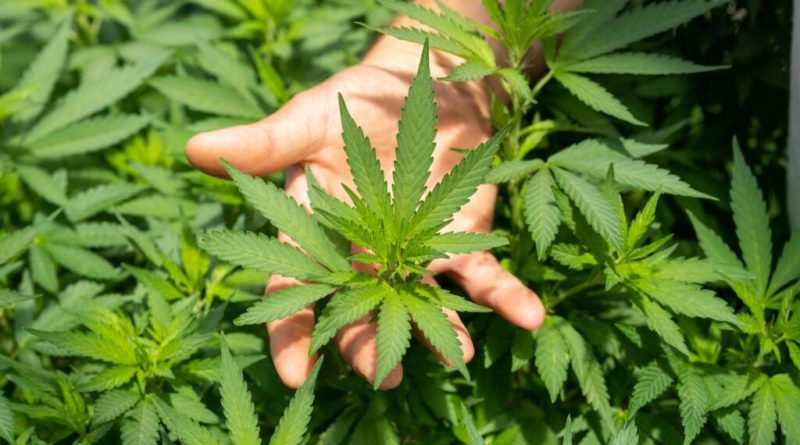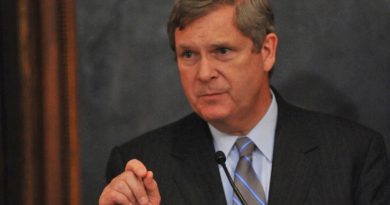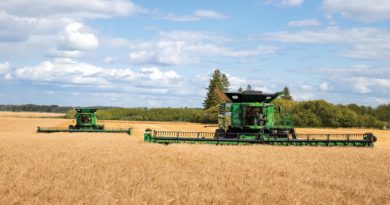Judge Rules in Favour of Botswana’s First Hemp Farmer
After a long court battle, Hemp farmer, Barend Daniel de Beer is relieved man as he will soon be able to resume production of hemp despite saying he lost millions along the way. This is after Gaborone High Court ruled in his favour.
Daniel de Beer the director of Fresh Standard, the first company to be granted an exemption to plant and grow hemp, cannabis like plant for medicinal and industrial purposes in Botswana, was on Friday granted a fresh start by the Gaborone High Court to continue the production. Justice, Chris Gabanagae of Gaborone High Court ruled that the revocation of exemption letter he was granted in October 2018 was illegal.
The farmer had gone into a legal battle with government after saying he invested millions of pula into the project based on an exemption granted by former agriculture minister, Patrick Ralotsia, only for the police to raid and uproot his fledgling crops suspecting that the plants were cannabis commonly known as ‘motokwane’. The judge on his reasons said the permanent secretary (PS) had no right to revoke the exemption letter that only the Minister had the power to do so.
The PS does not have the power or authority to withdraw the exemption. The letter of March 29, 2019 purporting to withdraw the exemption could not and is not a valid withdrawal of the exemption-Justice Gabanagae Share on XJustice Gabanagae explained that on top of the PS simply not having that authority to withdraw the exemption, he also never engaged the farmer prior to issuing the letter and that he was never accorded a hearing at all let alone a fair one. He pointed out that Daniel de Beer made out his case therefore the withdrawal was improper and unlawful.
“The right to a fair hearing cannot be avoided or dispensed with because it is felt that the person otherwise entitled to it would have little or nothing to urge in his favour or that it would not affect the decision anyway,” the judge said.
The judge explained that the minister at the time said that he exercised his powers to give exemption letter thus it constitutes a valid and lawful exemption. He said the minister acted within the requirement of the law throughout and accorded due respect to the court and by law itself by making candid disclosure without taking refuge in silence or seeking to cover up the reasoning behind the decisions he took.
The evidence shows clearly and indisputably that the minister granted the exemption to the farmer in respect of the cultivation and processing of hemp and its products along the entire value chain - Justice Gabanagae Share on XMeanwhile Daniel de Beer, who fought for the revocation to be reviewed, said in October 2018 he received the exemption to grow, process and produce products from cannabis sativa and hemp dominant strands for medical and industrial purposes in the country. He said following the granting of the exemption, he spent millions of pula in establishing the business, but his farm was on or about May 7, 2019 raided by officers of the Narcotics Squad of the Botswana Police Service.
Daniel de Beer said the move by the government forced him to make an urgent enquiry as to why the uprooting happened as the company was operating lawfully before he got to know about the withdrawal of the exemption. It was his contention that the communication about the withdrawal was illegal in that it was contrary to the empowering statute and unreasonable because the decision was made without affording him any form of hearing despite the serious effect that the decision had on his business.
Cultivation of hemp has always been illegal in Botswana. This was emphasized by the former Minister of Agricultural Development and Food Security, Dr Edwin Dikoloti, when answering a question in Parliament. He said that the growing of Industrial Hemp also known as Cannabis is prohibited and is punishable by law in Botswana.
“Industrial hemp is clearly prohibited in Botswana in accordance with First Schedule of the Planet Protection Act of 2007, Cap 35:02, and also according to the Illicit Traffic in Narcotic Drugs and Psychotropic Substances Act of 2018, Part II Section 6 (1)” Said Dr Dikoloti at the time.
This doesn’t make sense to many Batswana though, as they feel there are already a number of products that contain hemp which are sold in local shops. Therefore, their argument is, if they already have hemp products in local shops, why is it difficult to allow for the cultivation of industrial hemp in the country.
The country’s largest business lobby group, Business Botswana, has proposed that government must investigate the introduction of the cannabis family of crops, as a cash boost and diversification strategy for agriculture. The organization recently drafted a 50-page “Recovery Plan for the Private Sector,” giving its recommendations on how the country could shake off the effects of COVID-19 and restructure the economy going forward.
The document which was prepared in partnership with the United Nations Development Programme, lists numerous proposals for economic diversification, business facilitation and revenue generation going forward, which includes Cannabis cropping.
Government must undertake the requisite research to inform any necessary reviews of legislation to facilitate the diversification of agriculture into high value cash crops such as cannabis... Share on XProduction of Industrial hemp is legal in 13 of the 54 African nations. About 5 from those 13 are from the SADC region, namely, Lesotho, Malawi, Zimbabwe, Eswatini and South Africa. A 2019 report by New Frontier Data indicates that 50 countries in the world have legalized hemp production. The Report states that some of the countries legalised hemp for medicinal purposes whilst others such as Mexico and Canada have legalised it for both medicinal and recreational purposes.
The report also uncovered an interesting statistic, that is, one- third of worldwide cannabis users stay in Africa... Share on XThe Report further suggests that since Lesotho became the first African nation to legalize medical cannabis in 2017, African cannabis use rate has been nearly twice the global average use rate of 6%.
Photo: Popular Science


